I've always known Studio 54 more as a symbol than an actual place. Yes, from 1977-1980 there was an ultra-exclusive disco, drugs, and - not officially, but who are we kidding here - sex club run by Steve Rubell and Ian Schrager. It was the type of place where a drag queen could dance with Mick Jagger, Dolly Parton could rub elbows with Andy Warhol...
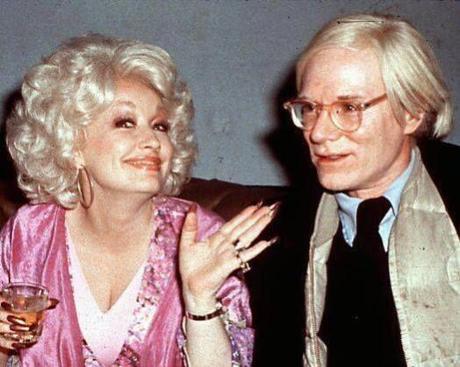
...and pet a horse. No, that's not a gross euphemism.
However, like a modern day Sodom and Gomorrah, the Studio 54 name has transcended its time and place and instead become synonymous with pure, unadulterated hedonism. Now, when someone leaves an especially crazy party they might say, "It was like Studio 54 in there!"
Or at least maybe they would say that if it was the 90s or early 2000s, a time when people still remembered if not actual Studio 54 then at least the myth surrounding it. Here in 2019, it feels like Studio 54's pop culture cache has faded to the point that many are likely hearing about it for the first time through the new Netflix documentary called, bluntly enough, Studio 54. If so, the story behind the myth is depressingly familiar: immense success followed by astonishing excess leading to an inevitable fall and barely-noticed death.
Directed by Matt Tyrnauer, a filmmaker with a track record of highlighting the famous ( Valentino: The Last Emperor) and famous-adjacent ( Scotty and the Secret History of Hollywood), Studio 54 attempts to elevate this most familiar of American crime stories. Yes, the club's meteoritic rise - in short: two friends from New York converted an old, abandoned CBS TV studio n a rundown part of town into a glitzy nightclub and worked magic through their immense mastery of marketing - dizzying success and epic fall are all highlighted.
However, Tyrnauer goes to great lengths to not only probe the story behind Studio 54 but also the mystique which surrounds it. "What made Studio 54 so special? And why should we care about it today?" he seems to be asking.
The "special" is somewhat easily understood. I mean, did you not see the part about the drugs, dance, and sex along with the ever-present inclusion of high profile celebrities?
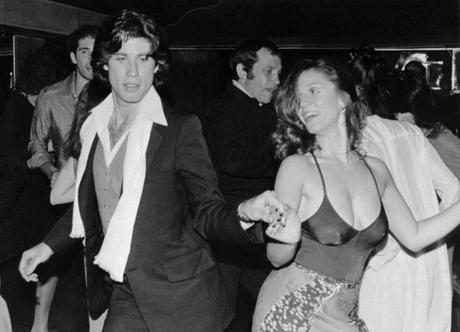
It's the enduring relevance which gets a more interesting spin, as various former Studio 54 regulars and workers paint a picture of an almost utopian experience where people from all walks of life could commingle without threats of violence. If we think racism, homophobia, and sexism are bad now, we can't imagine how much worse it was back then. Some Studio 54 regulars who were cross-dressers admit they risked their lives every night they went to the club. Once they got there, they were safe, protected and embraced by club co-owner and still-partially-in-the-closet Rubell, but at any point on the walk or drive over a New Yorker could have committed a hate crime against them.
The world couldn't be fixed, but for at least as long as Studio 54 existed people who might be enemies outside could party together inside. That sounds mighty appealing in any time, but especially now.
Of course, they were partying while Rome burned, with the country in the middle of the worst economic downturn since The Great Depression, a point Tyrnauer makes through archival footage. And much like the way the entire tone of the Paul Thomas Anderson masterpiece Boogie Nights changes when the calendar switches from 1979 to 1980, everything about Studio 54 changed when the 80s arrived and brought with it AIDS and Reaganism. Not that Rubell and Schrager were around for that. By that point, they were already in prison.
So, clearly, Tyrnauer's pitch is Studio 54 was the last gasp of the liberated 70s but its success and notoriety flew in the face of the economic hardships being faced by the rest of the country at the time. This made Studio 54 a target. Once the U.S. government took notice, prison sentences weren't far behind since Rubell, Schrager, and their silent financial backer truly were skimming millions and not reporting it in their tax returns.
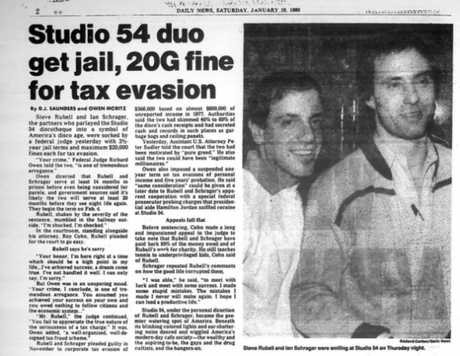
That touches on the larger story of the documentary: Rubell and Schrager's enduring friendship. Rubell, the showboat at the club door, and Schrager, the manager behind the scenes, stuck together through every step of the journey. They launched Studio 54 together, went to prison together, and rebuilt their careers together. When Rubell was taken by AIDs in 1989, Schrager marched on with their planned career in real estate, enjoying great success in the process, but it's a success he now claims feels somewhat empty without his old friend around to share it with him.
Schrager, interviewed today, is now an old man filled with immense regret. It becomes clear as Studio 54 goes on that he sat down with Tyrnauer hoping for softball questions, like maybe, "Tell me your craziest celebrity story from the club." Instead, he gets harder questions, like how much he knew about their money skimming operation and when he knew it. At one point Schrager is so surprised he cracks a joke about feeling like he's being interviewed by the District Attorney.
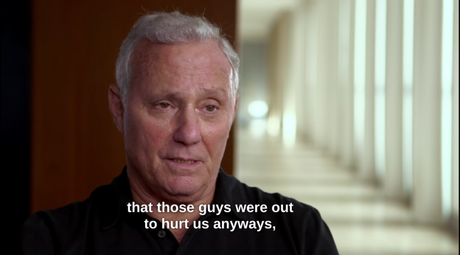
If that were true, however, there would also be interviews with some of the rival club owners who were eventually destroyed when Rubell and Schrager named names in exchange for a reduced prison sentence. Tyrnauer doesn't go that far, but he does enough to ensure Studio 54 is more than just a puff piece about that club a lot of famous people went to in the 70s.
Thanks to this documentary, the world is no longer waiting outside the club doors hoping Rubell will pick us out from the crowd and let us into the promised land of drugs, dance, and crazy. Now we know, getting inside would have been a dream, but if we stuck around long enough it would have turned into a nightmare.
One Last ThingLike seemingly every documentary about 1970s New York, Joseph McCarthy protege/Donald Trump mentor Roy Cohn eventually plays a prominent role through archival news footage as Rubell and Schrager's attorney. Appropriately enough, Tyrnauer's next documentary? Where's My Roy Cohn?, which sold to Sony Pictures Classics at Sundance in January.
Studio 54 is on Netflix now. Where's My Roy Cohn? will hit theaters later this year.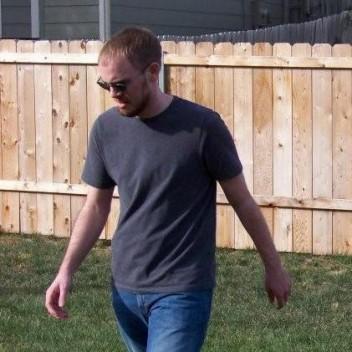
Grew up obsessing over movies and TV shows. Worked in a video store. Minored in film at college because my college didn't offer a film major. Worked in academia for a while. Have been freelance writing and running this blog since 2013. View all posts by Kelly Konda

